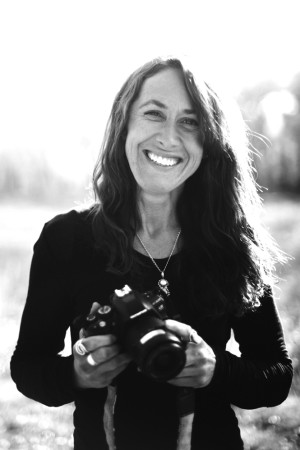A Bushel’s Worth: An Ecobiography
By Kayann Short
Torrey House Press, paperback 215 pp $14.95
Reviewed by Annie Dawid
Thus must it be, when willingly you strive
throughout a long and uncomplaining life
committed to one goal: to give yourself!
And silently to grow and to bear fruit.
Rainier Maria Rilke, “The Apple Orchard”
In Kayann Short’s memoir, her first book, A Bushel’s Worth: An Ecobiography, the reader is treated to a wise and compassionate woman’s understanding of how to live a meaningful life on the Colorado soil of Stonebridge Farm. Not only does her philosophy apply to this one very specific organic farm, but on an abstract level, to a way of living. She quotes the Rilke passage above in reference to one of her earliest teachers, a Mr. Osborn with whom Short celebrated her first Earth Day.
“Like a sturdy and steadfast apple tree, Mr. O committed himself to his students, the fruit that he helped nurture in a world just beginning to realize the threats to its ecological systems.”
Like her teacher, Short became a teacher, as well as a writer, farmer and activist, a pioneer in the rapidly growing Community Supported Agriculture (CSA) movement. In addition to her work with elders, adult literacy students and nonprofits developing storytelling projects, digital and otherwise, she and her husband founded and continue to run Stonebridge, a cooperative which feeds dozens of families in her local area outside of Boulder.
As is quickly evident, however, Stonebridge is not solely about feeding hungry mouths. The farm also feeds the cultivating urge, a kind of spiritual desire so long dormant among most of the United States’ urban and suburban 21st century population. Each year, she and John open the farm to potential new cooperative members and to the returning old-timers. “After we’ve picked and counted and greeted and welcomed and toured and talked, John and I walk back to the house for lunch and naps. Opening day has been perfect this year, the kind of spring day when working outside feels like play. We are grateful for the community of Stonebridge members that returns us to the fields each day. The start of another farm season has begun with its familiar rhythm: We work, we wait, and the earth gives again.”
In addition to being a primer on how to start a CSA of one’s own, A Bushel’s Worth is a beautifully written account of a woman figuring out her purpose on the planet, a lyrical adventure on a truly “purpose-driven” journey. “I’ve been a feminist all my life, although I didn’t use the term much until I went to college. I reject the idea that people are divided into only two gender groups with rigid demarcations that privilege one group over the other,” said Short in an interview. She remarks that in the CSA movement, “The return to smaller-scale farms and organic methods in particular has attracted women to farming.” Her teaching has emphasized women’s roles in many areas of life, including women’s literature, “because of all the great books with strong female protagonists as empowering role models.”
Consciously or not, Short is her own “empowered” role model in this volume, inspiring to readers of both genders regarding what can be accomplished in an ordinary life – not one of special privilege or peculiar to the lucky. She chronicles her troubles in other important parts of her trajectory before the advent of Stonebridge. Regarding the beginning of her romance with John, she writes, “That first fall together amid stresses of work and family as I drove back and forth from town to the farm, I wondered whether I would be around to reap the garlic we were planting in October in anticipation of a spring harvest. We were both so busy with our daughters (from earlier marriages) and our jobs that finding time to spend together, let alone farm, looked unlikely. Making a commitment to something as simple as garlic seemed a risk I wasn’t sure I wanted to take.”
Fortunately for the CSA, the marriage and the reader, her doubts and fears eventually diminish into manageable challenges. “Like relationships, fall crops demand faith.” Peppered throughout the memoir, in addition to photographs, are lines of poetry, philosophy and other texts that have inspired Short throughout her journey, and promise to inspire us as well, like Lao Tzu’s “Nature does not hurry, yet everything is accomplished.”
In reading A Bushel’s Worth, one acquires the idealism to make such accomplishment possible, and the practical wisdom with which to begin.
Hutchinson Homestead, Stories of the Upper Arkansas Valley
By Betty Plotz
Reviewed by Forrest Whitman
In this new offering by Betty Plotz of Salida, she tells the story of the Upper Arkansas Valley by using the autobiographical writings and tale-telling of three Hutchinsons: John Arthur “Uncle Art” Hutchinson (1870-1950), Joseph Duhrsen (born 1909), and Wendell Forbes Hutchinson (born 1924). It’s an interesting way to tell a story from Colorado Central country. All three speak of their era firsthand and bring us the valley history as they go along. Uncle Art’s stories talk of settling the valley, relationships with the local Utes, and the pleasures of the pioneer life, including drinking parties. He knew well the first settlers along the South Arkansas River, the first post office, and the local Utes (including Chief Colorow and others). Visitors to the historic ranch today can view Uncle Art’s cabin and go inside on visiting days.
Joseph Duhrsen, “JDH,” tells the middle-era history of the valley and the ranch. JDH served in the army, was a pilot and was elected sheriff of Chaffee County. He gives a more wide-reaching view of the ranch and its place in commerce. JDH tells how they weathered the Great Depression. It was no easy time. His journals are lyrical and his descriptions of the land are quite lovely. His stories of eating in the old ranch house are especially cozy. He talks of roasts and steaks, brown gravy over biscuits, and white cake to make the mouth water. Today the old ranch house is under restoration and can be visited from time to time.
The final storyteller, Wendell Hutchinson, still occasionally lives at the ranch. Betty presents his story lovingly, as she was his caregiver from 2003 to 2007. He was a well-known veterinarian in the county and graduated from veterinary school at CSU. He served for 32 years on the school board and was always active in civic affairs. Today his second daughter, Abby, runs the ranch. The educational mission of the ranch is moving along well. Workshops and tours happen regularly. The ranch has garnered support from the Colorado Historical Society and other agencies. The hope is that the Hutchinson Ranch will open the eyes of each generation to the valley heritage.
The book is lavishly illustrated with many original photographs. It can be purchased at the ranch’s visitor center and in area bookstores; all profits go to support the Hutchinson Homestead.


